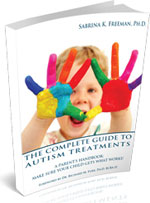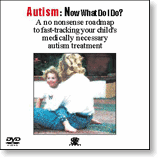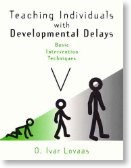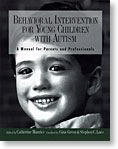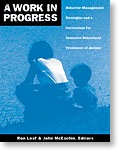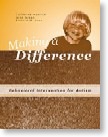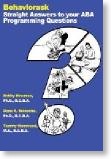Political Correctness and the SLP
25/08/11 13:20
What is the role of a Speech and Language Pathologist (SLP) in the treatment of autism? It makes sense that when a child doesn’t speak or understand, this would be the first place to go for help. Correct? Not so fast... Yesterday, MSN Health and Fitness attempted to give the parent of a child with autism 10 questions to ask the SLP to ensure that the parent understands what the SLP has to offer. Then the Health writers slip under their politically correct blanket when they say, “interventions also vary widely... That’s why it’s essential to get individualized answers to your questions...” Wow!!! That sure was helpful, wasn’t it?
It is worth noting that a good SLP is priceless, and a bad SLP will steal your child’s precious time, and empty your bank account. So, caveat emptor! In addition, many parents are not informed that when a very young child enters a high quality, Intensive Behavioral Treatment (IBT) program, the speech and language aspects of the program have already been incorporated into the treatment protocol. Once the child has progressed to the point where the IBT program has not adequately remediated the speech and/or language difficulties, then it is time to search for a competent SLP. A good behavioral consultant will often recommend an effective SLP who becomes an important part of the team. If that happens, chances are the parent will be in good hands; however, if this does not occur, it’s time to be a savvy consumer:
Here are my 10 questions to ask a prospective SLP, and the answers you should be looking for (I’m putting on my Beekeeper’s suit since I’m shaking an SLP hornet’s nest here):
1. What techniques do you use for autism spectrum disorder in your practice today?
Answer: Although I’ve learned a variety of philosophies, for autism I rely on a highly behavioral approach since that works best.
2. Do you use a child-lead philosophy or is your approach more adult-lead?
Answer: For autism, my approach is much more adult-lead than most SLPs because the learning is more efficient that way.
3. What is your opinion on the Hanen method?
Answer: I’m very familiar with the Hanen Method, but I do NOT use it for children with autism (and I don’t think that there is enough data supporting that method to use it with this population of children).
4. Are you going to send me to a course to teach me to use the “It Takes Two to Talk” manual?
Answer: The burden of therapy with your child will not be placed on you, particularly since this manual has insufficient science behind it to justify its use.
5. What do you think of the SCERTS method?
Answer: I’m also familiar with the SCERTS Model, and I am unimpressed with the data to this point.
6. What about “The Learning to Speak” program?
Answer: “The Learning to Speak” program with the twelve minutes a day “parent as therapist” model has insufficient science behind it to justify using it with your child.
7. Do you create speech and language exercises for others in my child’s life to do outside of one-on-one therapy with you?
Answer: I am committed to provide exercises the therapists can do with your child in their treatment sessions (as long as they take data to make sure that they are adequately executing my written instructions). I would also like to do training with them as the need arises.
8. How do you generalize the activities my child has done in your sessions to his/her world outside of the therapy room?
Answer: Generalization of skills is my ultimate goal! I will be instructing you on how to incorporate language when you are with your child (and the therapists have gone home). I am not suggesting that you have therapy sessions with your child; however, every skill your child masters must be generalized to you as well. In other words, I want mastered linguistic skills incorporated into your child’s life; otherwise, what is this entire exercise for?
9. How much of my child’s time should be spent concentrating on speech and language outside of sessions with you?
Answer: I would like to see skills introduced by me, practiced every day with your child by your treatment team, and then generalized through every communicative interaction in your child’s life.
10. Do you use behavioral techniques in your work?
Answer: I use behavioral techniques heavily, relying on highly motivating rewards in my sessions with your child. In addition, I will set up rewards for your child to earn when with others at home, at school and in the community.
If the SLP is enamored by the Hanen Method, the SCERTS Model, or any child-lead model or philosophy when it comes to autism, run the other way... You will save your child’s precious time, and as a side benefit, you will not have to undergo excruciating pain of watching high-price inefficiency at work.*
*Despite the number of SLPs with Ph.D.’s behind their names and the number of university clinics offering this method, peer-reviewed data studying children with autism on the Hanen Method, SCERTS model and the “Learning to Speak” program are either weak or non-existent.
It is worth noting that a good SLP is priceless, and a bad SLP will steal your child’s precious time, and empty your bank account. So, caveat emptor! In addition, many parents are not informed that when a very young child enters a high quality, Intensive Behavioral Treatment (IBT) program, the speech and language aspects of the program have already been incorporated into the treatment protocol. Once the child has progressed to the point where the IBT program has not adequately remediated the speech and/or language difficulties, then it is time to search for a competent SLP. A good behavioral consultant will often recommend an effective SLP who becomes an important part of the team. If that happens, chances are the parent will be in good hands; however, if this does not occur, it’s time to be a savvy consumer:
Here are my 10 questions to ask a prospective SLP, and the answers you should be looking for (I’m putting on my Beekeeper’s suit since I’m shaking an SLP hornet’s nest here):
1. What techniques do you use for autism spectrum disorder in your practice today?
Answer: Although I’ve learned a variety of philosophies, for autism I rely on a highly behavioral approach since that works best.
2. Do you use a child-lead philosophy or is your approach more adult-lead?
Answer: For autism, my approach is much more adult-lead than most SLPs because the learning is more efficient that way.
3. What is your opinion on the Hanen method?
Answer: I’m very familiar with the Hanen Method, but I do NOT use it for children with autism (and I don’t think that there is enough data supporting that method to use it with this population of children).
4. Are you going to send me to a course to teach me to use the “It Takes Two to Talk” manual?
Answer: The burden of therapy with your child will not be placed on you, particularly since this manual has insufficient science behind it to justify its use.
5. What do you think of the SCERTS method?
Answer: I’m also familiar with the SCERTS Model, and I am unimpressed with the data to this point.
6. What about “The Learning to Speak” program?
Answer: “The Learning to Speak” program with the twelve minutes a day “parent as therapist” model has insufficient science behind it to justify using it with your child.
7. Do you create speech and language exercises for others in my child’s life to do outside of one-on-one therapy with you?
Answer: I am committed to provide exercises the therapists can do with your child in their treatment sessions (as long as they take data to make sure that they are adequately executing my written instructions). I would also like to do training with them as the need arises.
8. How do you generalize the activities my child has done in your sessions to his/her world outside of the therapy room?
Answer: Generalization of skills is my ultimate goal! I will be instructing you on how to incorporate language when you are with your child (and the therapists have gone home). I am not suggesting that you have therapy sessions with your child; however, every skill your child masters must be generalized to you as well. In other words, I want mastered linguistic skills incorporated into your child’s life; otherwise, what is this entire exercise for?
9. How much of my child’s time should be spent concentrating on speech and language outside of sessions with you?
Answer: I would like to see skills introduced by me, practiced every day with your child by your treatment team, and then generalized through every communicative interaction in your child’s life.
10. Do you use behavioral techniques in your work?
Answer: I use behavioral techniques heavily, relying on highly motivating rewards in my sessions with your child. In addition, I will set up rewards for your child to earn when with others at home, at school and in the community.
If the SLP is enamored by the Hanen Method, the SCERTS Model, or any child-lead model or philosophy when it comes to autism, run the other way... You will save your child’s precious time, and as a side benefit, you will not have to undergo excruciating pain of watching high-price inefficiency at work.*
*Despite the number of SLPs with Ph.D.’s behind their names and the number of university clinics offering this method, peer-reviewed data studying children with autism on the Hanen Method, SCERTS model and the “Learning to Speak” program are either weak or non-existent.
